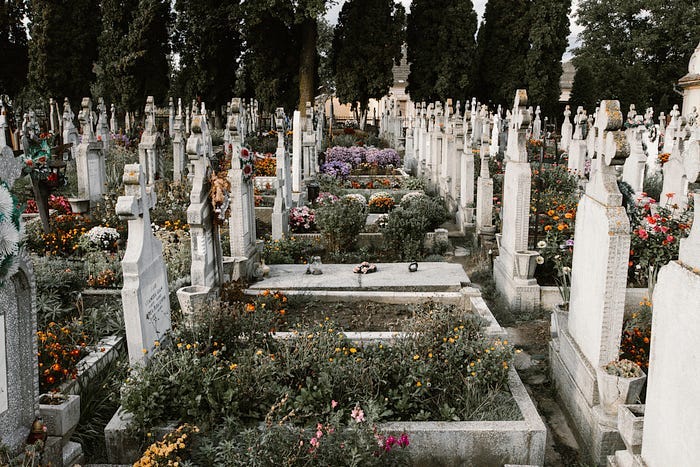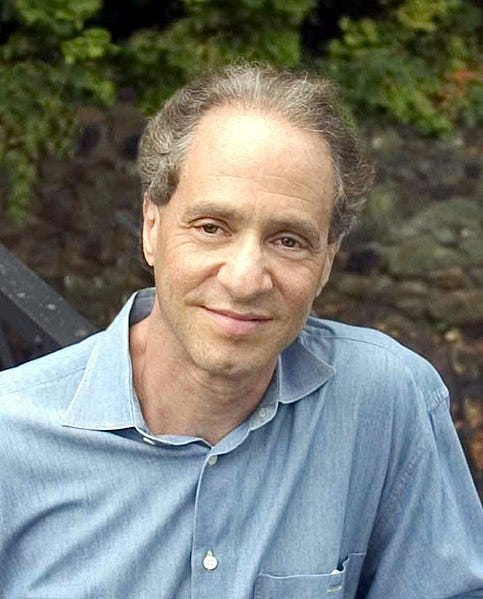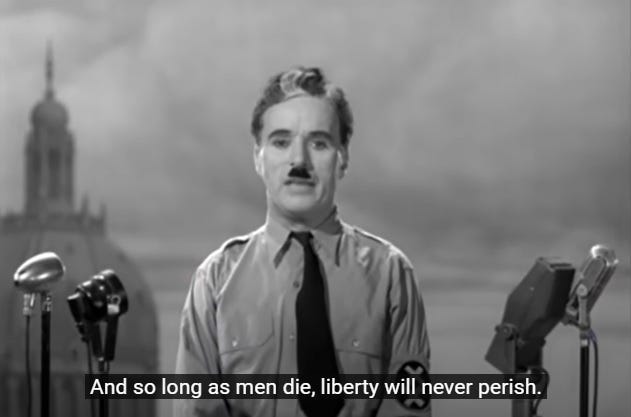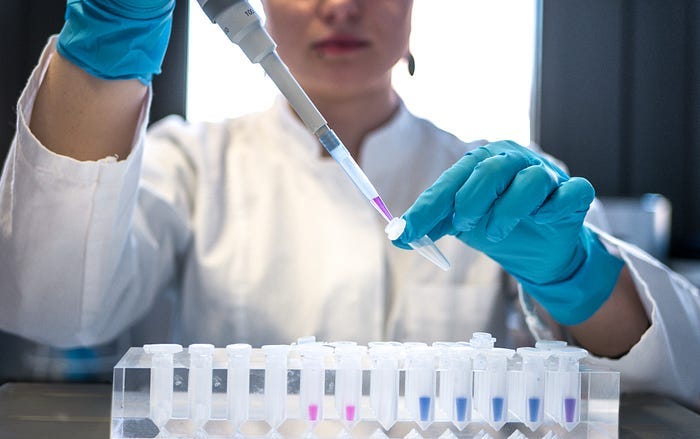Why We Should Continue To Die, Even Though Science May Help Us Live Forever
The hidden draw backs to immortality

“I don’t think we should try to have people live for a really long time. That would cause asphyxiation of society because the truth is, most people don’t change their minds. They just die. So, if they don’t die, we will be stuck with old ideas and society wouldn’t advance.”
I’ve had a couple surreal experiences in the past month or so. An older aunt just died, and family I’d hadn’t seen in ages got together for the funeral. It was good to see them. But it was also terrible at the same time because their faces and appearance had changed.
They’d gotten so old.
A terrifying thought entered my mind and wouldn’t leave it all day: this funeral day is going to repeat. I’ll lose these people too. No matter how hard I tried to push it out of my mind, the thought kept coming back.
I’d always understood the point behind the epic search for eternal youth throughout history. So, the tales I read about it made sense.
The ancient king in The Epic of Gilgamesh travels the world searching for it, only for immortality to escape him.
Later in life, Genghis Kahn quizzed the monk Qiu Chuji to see if there was a secret to living forever. Turns out there wasn’t.
Qin Shi Huang, the first emperor of China, drank mercury thinking it would help him live forever. It killed him at 49.
The idea of seeking a way to cheat death for oneself is what I always imagined drove these attempts— like the stories above. But the funeral put another thought in my head. Death should be cheated for our loved ones, so those future burial days could be avoided.
This isn’t fiction, according to some tech gurus.
They believe there is a path to eternal life. In fact, a futurist and author working for Google, named Ray Kurzweil has a three-step path for it. Plus, a backup plan.
What’s not to like? Those future funerals would never occur, plus we’d get the benefit of not worrying about our own mortality. It’s a logical idea and a win-win solution for any reasonable person.
Well, except me. I’ll be the unreasonable idiot to object. We should continue to die, me and you included in the death count. Elon Musk’s comment above is a small reflection on my reasoning.
But before I convince you to die, you need to believe eternal life is possible and death might be a choice one day.
So, let’s examine Kurzweil’s plan.
Kurzweil’s Three Bridges To Eternal Life
“Ray Kurzweil believes in aggressive life extension — and lives by his own example. Besides daily exercise and a healthy diet, Kurzweil takes more than 250 supplements daily, often in doses much larger than the US RDAs. He closely monitors or tests at least 50 measures of his own health and recommends that everyone interested in serious life extension regularly test blood levels of important vitamins and nutrients.”
— Jon VanZile in Life Extension Magazine
Kurzweil believes humanity can conquer death by crossing three bridges to the future of our species:
Reprogram our body chemistry
Biotechnology,
Nanotechnology.
The first bridge is the most important, at least to Kurzweil. It involves being able to live long enough for technological marvels to come to fruition. Easier said than done, right? But the futurist believes it’s within reach.

He thinks science can improve natural body function dramatically and most government health guidelines shoot way too low by design.
His first step is to adjust the pH level of your body fluids. Most have “narrow parameters.” He recommends keeping your body pH slightly alkaline by drinking specially treated purified water and avoiding soda.
Next, get your blood sugar under control or reduce your glycemic load. Carbohydrates like refined sugar elevate your blood sugar causing your body to use insulin to get the level down, causing a “vicious cycle.” Peanuts, carrots, and lentils are better carbs.
Similarly, you need to pick the right fats in your diet. Omega-6 fatty acids can cause inflammation linked to many health problems. Omega-3s fight inflammation. He also relies on heavy supplement use and continuous measurement to optimize the way the body functions.
Kurzweil thinks if you can squeeze an extra twenty healthy years or so out of your body, you’ll live long enough to see a revolution in medical technology, starting with the second bridge of biotech. Gene therapy will allow customized medicine. Plus, common ailments that kill us will have treatments.
The final third bridge is nanotech involving tiny robots implanted into our bloodstream. Kurzweil says it sounds like sci-fi, but it’s coming. He states:
“There are already many experiments in animals that use blood cell-sized devices. One experiment we write about…involves a device the size of a blood cell that cured type I diabetes in rats. Pancreatic islet cells are actually inside the device. Glucose gets into the islet cells to be measured and insulin is released. It works perfectly normally. That’s occurring today.”
Once this technology becomes common, we’ll be able to control, monitor, and fix our bodies in unprecedented ways, possibly living forever. We’ll become our technology.
This also foreshadows his backup plan, which he calls the singularity, where raw computer power and technology allows humans and machines to merge. While not exactly eternal life — as you’d expect it — we could escape death in a new form.
So, Why Should We Die
Now this is the question you’re likely asking: if we don’t have to, why should we die. The answer isn’t obvious, although it should be. It involves three bridges itself.
Death forces internal change within ourselves
Death forces external change to society
Death’s “invisible hand” in numbers
Let’s start with the last because it involves hard numbers. Nick Routley and Our World In Data reveal there are currently about 7.95 billion people on Earth. It’s the largest population ever sustained on our planet.
But it gets staggering when you think about how many people have ever lived. It totals 117 billion people, including those alive today. As they note in the article:
“This means that for every person alive today, there are approximately 14 people who are no longer with us.”
While 140 million are born every year, 60 million or so kick off to make some room. Now, what happens if the outward flow stops? Those numbers add up quickly. But it’s not just the avoidance of death, there’s also the case of greatly lengthened life.
Add another thirty years on everyone’s life, plus imagine if child-producing years are extended. Suddenly, the numbers get skewed.
Adam Smith once referred to the “invisible hand” that guides the market. Well, death does the same thing. Its invisible hand allows a society to grow in ways we rarely think about.
The 110 billion that passed before us gave us room. Not just physically, but economically, spiritually, and politically. What happens if we’re not given that room?
This leads us back to the first two bridges.
The Positive Changes Death Brings To Society
While the word “death” brings us images of those terrible funerals, it can also do positive things — namely, for society. Let’s go back to Elon Musk’s words for a second. They’ll help us visualize this.
“Most people don’t change their minds. They just die. So, if they don’t die, we will be stuck with old ideas and society wouldn’t advance.”
As a society, certain things can only change with death. For instance, the idea of the funeral brings about the sad thoughts of loved ones passing on. However, it also allows old ideas to die along with the people we bury.
The famous actor Charlie Chaplin made a movie during the initial rise of Hitler in Germany called The Great Dictator. During the movie he mocks the infamous leader. But Chaplin also gives one of the greatest speeches ever delivered on screen.

He reminds the viewer death can free humanity from tyrants because they’re mortal and eventually pass on. Chaplin states:
“The hate of men will pass, and dictators die…and so long as men die, liberty will never perish.”
The Positive Changes Death Brings To Individuals
But death not only benefits society, it can benefit us on an individual level. The ancient Greeks and Romans were aware of this. They conducted a ritual for over 2,000 years that brought a participant to the very edge of death and back. They were forever changed.
Author Brian Muraresku explains the Eleusinian Mysteries exposed pilgrims to a secret mind altering drug that made them leave their body and travel among the stars. In his book The Immortality Key, he notes the greatest figures in Greek and Roman society all took part in the ritual.
Muraresku believes the Mysteries exposed the initiate to a smaller death, thereby alleviating fear of their eventual death and making their life richer. An inscription at St. Paul’s Monastery on Mt. Athos in Greece explains it in simple words.
“If you die, before you die, you won’t die when you die.”
Famed author Robert Greene, who penned The 48 Laws of Power mentions something similar. In a recent interview, he explains a brush with death changed his life. It also made him take on a project he’d been putting off for years and changed his perspective in many ways.
Greene saw something similar in another celebrity. The author helped rapper 50 Cent cowrite a book and got to spend time with him. Greene notes the musician came close to dying as well. After getting shot thirteen times and a long recovery, the rapper became a new man.
He gained a strange calmness and confidence, as if he conquered death.
While “little deaths” can change us, its hovering presence also pushes us. Without it, why would we ever press ourselves since we had all the time in the world. A finite time frame gives each minute value.
Choose Death

I’m sure much of what you’ve read sounds crazy: eternal life, nanobots, and “choosing to die” when you don’t have to. But I believe the science Ray Kurzweil describes is coming. What its exact time horizon is, no one can tell exactly.
But greatly expanded lifespans and possibly eternal life will be a reality. Get prepared.
Both of us may find ourselves entertaining an odd choice one day in the future. Biotech may allow us to live an extra fifty years. Then again, an injection of little robots into our blood may make it eternity.
At least for me, I’ll choose to pass on. What’s life without the “little deaths,” or the eventual ghost of final death adding to the value of every breath? Hopefully, you’ll come with me.
There are other generations we need to make room for. Plus, bad ideas must pass away.
But a forty-six-year-old is writing this. Maybe in another twenty years I’ll change my mind.
-Originally posted on Medium 3/31/22


